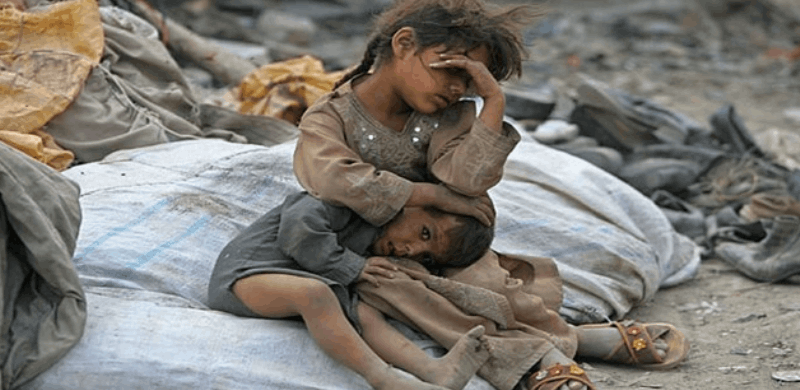
The report has identified three aspects of governance critical for rural revitalization: appropriate and predictable laws and regulations; effective policy implementation and enforcement; and accountability of those in positions of power and authority.
The 2019 Global Food Policy Report released by the International Food Policy Research Institute (IFPRI) has found that rural areas continue to be in a state of crisis in many parts of the world due to the vicious cycle of hunger and malnutrition, poverty, limited economic opportunities, and environmental degradation. This in turn threatens to slow the progress toward the Sustainable Development Goals, global climate targets, and improved food and nutrition security.
A majority of the world’s poor live in rural areas: rural populations account for 45.3 percent of the world’s total population, but 70 percent of the world’s extremely poor.
The global poverty rate in rural areas is currently 17 percent, more than double the urban poverty rate of 7 percent.
Rural areas remain underserved compared to urban areas and face a wide array of challenges across the globe: rural areas struggle with environmental crisis in China; severe agrarian crisis in India, and acute shortage of jobs for the growing youth populations in Africa. To overcome these challenges, the report calls for rural revitalization, highlighting policies, institutions, and investments that can transform rural areas into vibrant and healthy places to live, work and raise families.
The report emphasizes that rural areas could become premiere hubs of innovations in just under a decade. It recommends revitalizing rural areas with a focus on five building blocks: creating farm and non-farm rural employment opportunities; achieving gender equality; addressing environmental challenges; improving access to energy; and investing in good governance.
Job creation is critical to reducing poverty in rural areas, especially in the rural areas of Africa south of the Sahara, where poverty is high and youth populations are large.
Policies that encourage investments in rural transport networks, telecommunications, and human capital in African countries can prepare rural youth for new jobs in rural and urban areas, and bridge rural-urban gap, according to the report.
In South Asia too, there is a greater emphasis on growth in rural employment, and agricultural productivity by strengthening of the agriculture-based rural nonfarm economy, said Pramod Joshi, director for South Asia, IFPRI. The report has a mixed forecast for South Asia:
"The rural transformation in South Asia is at a crossroads. The rural sector has been gradually transforming, but agricultural livelihoods still provide more than 43 percent of employment, meaning that most jobs in South Asia are in the informal sector. Implementing a “decent employment agenda” will require improving rural livelihoods. The predominance of smallholder farming communities, their increasing political voice, and national commitments to the Sustainable Development Goals are prompting governments in the region to emphasize inclusive rural development strategies. Looking forward to 2019, the prospects for rural development are encouraging. Across South Asia, inclusive employment growth, continued agricultural productivity growth, and strengthening of the agriculture-based rural nonfarm economy will be essential to ensure inclusive rural transformation. However, the region remains poorly integrated and is not taking advantage of its cultural affinities, common geography, or the advantages of proximity. In addition, escalating trade tensions and tighter global liquidity may constrain the prospects for South Asia in 2019."
The report identifies three aspects of governance critical for rural revitalization: appropriate and predictable laws and regulations; effective policy implementation and enforcement; and accountability of those in positions of power and authority.
On Pakistan, the report notes the policy work done in the recent years.
"In Pakistan, despite political instability, several recent policies have created a framework for agricultural reform and rural revitalization."
These include the 2018 National Food Security Policy and National Water Policy, the 2012 National Climate Policy and enabling legislation of 2017, the 2018 Provincial Agriculture and Water Policies, and the National Drinking Water Policy. The National Food Security Policy focuses on value-added growth in the agriculture sector for both domestic and export markets and raising overall rates of economic growth to promote food security.
It sets a goal of 5 percent growth in the agriculture sector to reduce poverty and support a GDP growth rate of 7 to 8 percent. The policy also includes minimum standards for food safety, seed certification, and pest and animal health surveillance. Federally and provincially funded flagship programs—such as promotion of high-value crops, development of marginal and environmentally fragile areas, and targeted food distribution systems—have been initiated to create a modern, efficient, and diversified agriculture sector, with the aim of ensuring domestic food security and providing high-quality products for both domestic sale and export. In response to its emerging water crisis and concerns about climate change, Pakistan recently announced a National Water Policy designed to enhance water storage capacity, improve water governance, increase efficiency of water use, and introduce climate-resilient agricultural practices, watershed management, better management of subsoil water, and hydropower development. Likewise, provincial agricultural policies focus on enhancing farm productivity, diversifying to high-value and climate-resilient agriculture, increasing value-addition and competitiveness, strengthening research and extension, phasing out wheat procurement and diverting resources to agriculture, and enhancing resilience of smallholder farmers to climate change and natural disasters.
